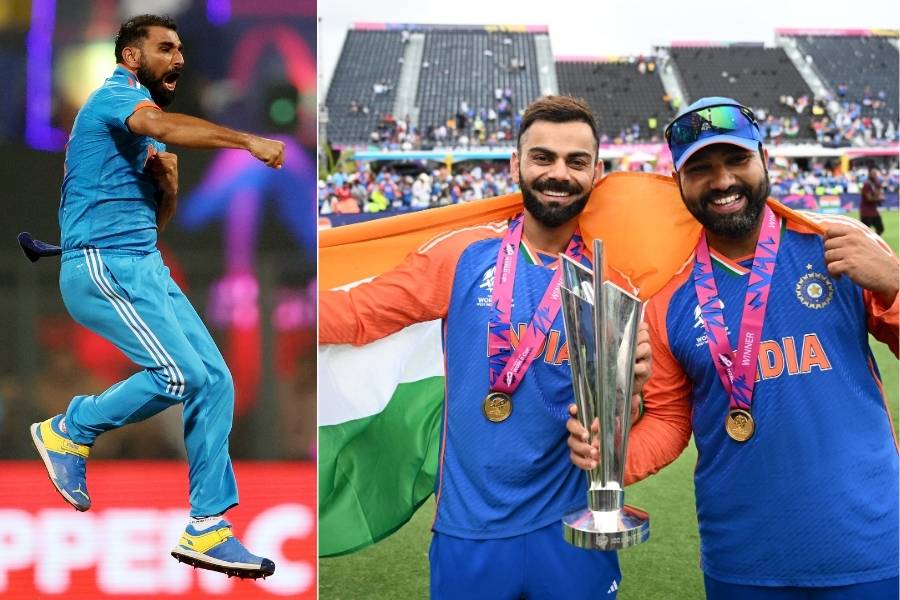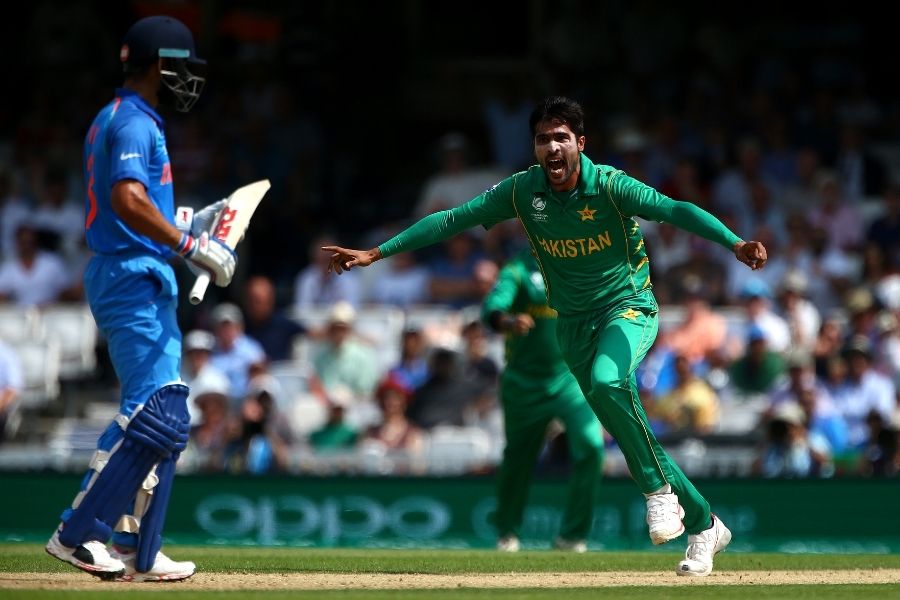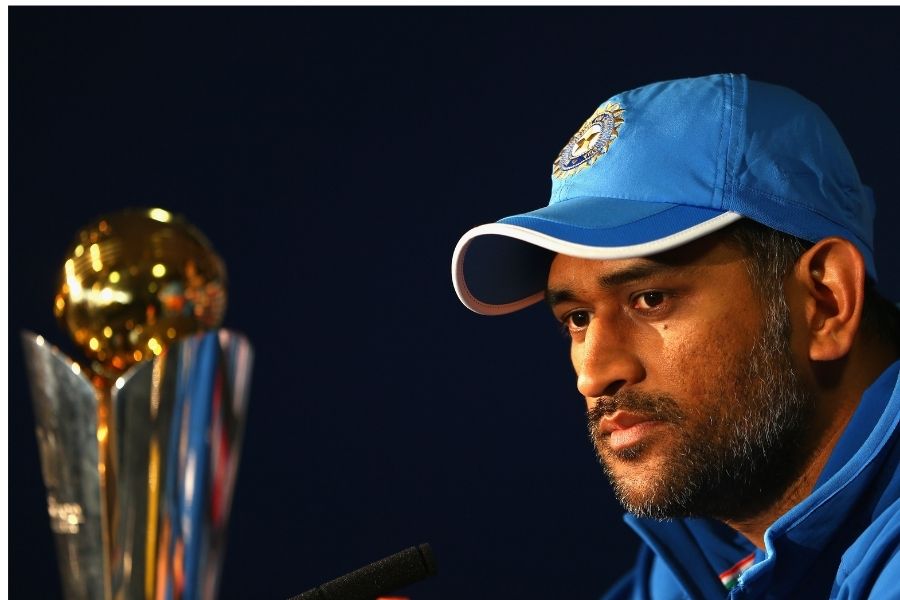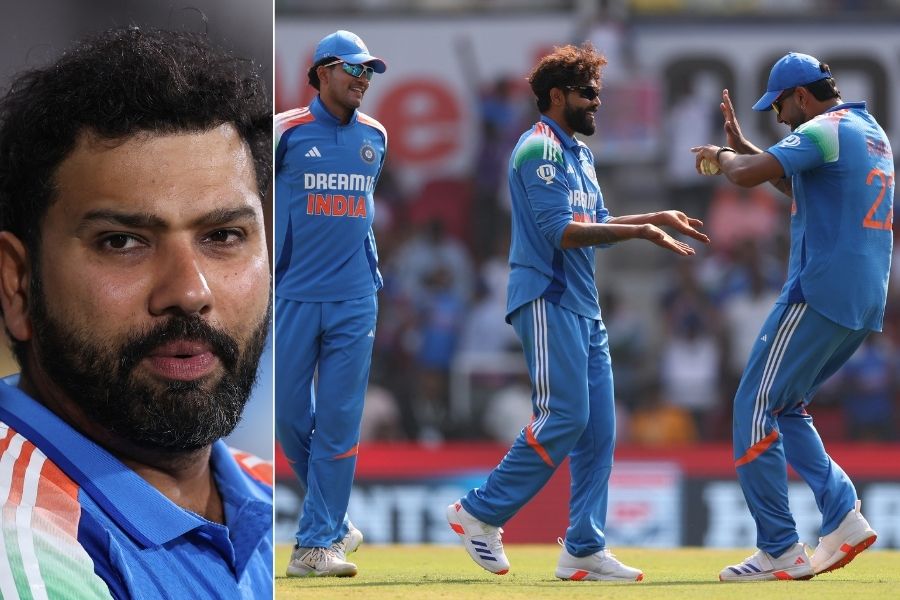Every ICC tournament is an emotional rollercoaster for Indian cricket fans. It’s a mix of soaring hopes, crushing disappointments and unforgettable moments that shape our connection with the game. For me, cricket has been a constant presence since childhood, an unshakable bond I share with my family. From crowded living rooms echoing with cheers to heartbreaks in the dead of night, the ICC Champions Trophy in particular brings back some of my fondest memories.
One such moment still gives me goosebumps: “Tredwell misses. Dhoni misses. But it doesn’t matter, India have won the Champions Trophy.” The sight of Mahendra Singh Dhoni, calm as ever, leading India to victory in 2013 remains etched in my memory. That moment, like so many others under Dhoni’s leadership, solidified his legacy as one of the greatest captains in ICC tournament history. As Team India gear up for the 2025 ICC Champions Trophy, I can’t help but wonder: does the team still miss Dhoni’s tactical genius? And can Rohit Sharma, now struggling with form, guide India to another title?
As much as I love watching India in ICC tournaments, this edition feels bittersweet. Rohit Sharma and Virat Kohli — two titans of Indian cricket — might be playing their last ICC event. For over a decade, Kohli has been the face of Indian cricket, a player who has redefined batting standards across formats. Rohit, too, has given us countless memories, from his record-breaking ODI double centuries to his astute leadership in white-ball cricket. But as of late, their form has been a lingering concern. Rohit’s struggles at the top of the order have been glaring, and in high-stakes tournaments, that’s a vulnerability India cannot afford. Kohli, while still among the most technically gifted batters, hasn’t been at his dominating best either. Their inability to find consistency could derail India’s campaign before it even gathers momentum. However, if there’s one thing about icons, it’s their ability to rise to the occasion when it matters most. And as a fan who has grown up watching them redefine Indian cricket, I’m rooting for them to deliver one more time.
India’s bowling has ample firepower, but needs to support captain Rohit

Rohit and Virat Kohli’s form will be decisive for India, while Mohammed Shami may have to take up even greater responsibility in the absence of Jasprit Bumrah Getty Images
Despite the concerns over senior players, the Indian squad has enough firepower to mount a serious challenge. In the ODI format, Shubman Gill has been consistent and aggressive. If he clicks in the tournament, he can set up solid platforms for the middle order with the right mix of flair and responsibility. Shreyas Iyer’s presence offers stability while Rishabh Pant and K.L. Rahul add a sense of mercurial menace for the opposition. Pant’s return post-injury has been encouraging but he remains a high-risk, high-reward player. Rahul, on the other hand, can anchor the innings but has sometimes struggled to accelerate. The batting unit’s key strength lies in its depth — if even a few players fire on any given day, India can post or chase down intimidating totals.
A popular cricketing adage states: “Great batters win you matches but great bowlers win you tournaments.” India’s current bowling attack might just be their biggest strength heading into the Champions Trophy. Even without Jasprit Bumrah, who has been ruled out due to injury. Mohammed Shami, returning from his own injury, has shown glimpses of his best in the series against England and his experience in crunch moments will be invaluable. The spin department, led by Ravindra Jadeja, Axar Patel and Washington Sundar, provides balance. Jadeja and Hardik Pandya, though not always consistent as all-rounders in ODIs, have historically delivered under pressure. But, as history suggests, bowling units often need support from fielding and captaincy — two areas where Dhoni excelled. Rohit’s leadership will be tested, especially in the knockouts, where he tends to become too passive (ICC World T20 2022) or too aggressive (ICC ODI World Cup 2023).
India’s major concern is the mental barrier of ICC knockouts

India were comprehensively outplayed by Pakistan in the final of the previous edition of the Champions Trophy in 2017 Getty Images
Every ICC tournament has a few matchups that define the journey of a team. India’s path in the Champions Trophy seems relatively straightforward, with Pakistan and New Zealand being the primary challenges in the group stage. While both teams have troubled India in past ICC events, neither are at their absolute best. Pakistan, despite home advantage, have a weaker squad than in previous years and New Zealand, though perennial overperformers, do not seem as threatening in ODIs as in T20Is. Australia, England and South Africa remain India’s biggest obstacles en route to the title. All three teams boast world-class squads with match-winners across departments. India’s major concern, however, isn’t just the quality of its opposition — it’s the mental barrier of ICC knockouts. Time and again, India have faltered in high-pressure games. The ghosts of 2017, when India lost to Pakistan in the Champions Trophy final, and the more recent heartbreaks in ICC events still loom large.
This time around, India will play all their Champions Trophy matches in Dubai — an interesting battleground. Nine members of India’s squad, including Kohli, have never played an ODI in the UAE. While they have IPL and T20I experience, the conditions in 50-over cricket differ significantly. Slower pitches, hot conditions and potential dew factors will challenge teams but modern analytics and preparation should help India adapt quickly. One massive advantage India will have? The home-like atmosphere. The UAE has the world’s largest NRI population, ensuring massive support for India in every game. The passionate, vocal fanbase will create an energy reminiscent of playing at home, which could boost morale and confidence.
The absence of a Dhoni-like figure remains palpable

Three of India’s last four ICC trophies have been won under the leadership of MS Dhoni Getty Images
It’s impossible to discuss India in an ICC tournament without remembering MS Dhoni. His calmness under pressure, his ability to read the game and his masterful use of bowlers at pivotal junctures of the game remain unmatched. Three of India’s last four ICC trophies — the 2007 T20 World Cup, the 2011 ODI World Cup and the 2013 Champions Trophy — were won under his captaincy. Since his departure, India have played exceptional cricket but have lacked that finishing touch in ICC events. Rohit’s captaincy has been effective in bilateral series and the IPL but leading India to a 50-over ICC title requires something more. While clinching the T20 World Cup last year will provide motivation for Rohit, the X-factor that Dhoni had — his aura, his unshakable belief, his feats of spontaneous genius —feels irreplaceable. Perhaps Gautam Gambhir, as head coach, can inject a similar winning mentality but the absence of a Dhoni-like figure remains palpable.
All things considered, India have all the ingredients for a deep run in the tournament. The squad boasts a mix of experienced campaigners and fearless youngsters. The bowling attack looks world-class and the team has enough match-winners to bail them out of tricky situations. However, a lot hinges on Rohit’s form, Kohli’s ability to step up in his potential final ICC event and the team’s ability to handle high-pressure moments. The path to the final is manageable but Australia, England and South Africa remain daunting obstacles. As an Indian fan watching from afar, I can’t help but feel nostalgic yet hopeful. This tournament might mark the end of an era but it could also be the perfect farewell for two legends of the game. One last ride for Rohit and Kohli. One last shot at redemption. And maybe, just maybe, the echoes of “Dhoni finishes off in style” can find new life in 2025.













